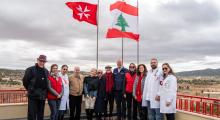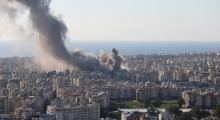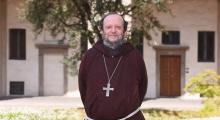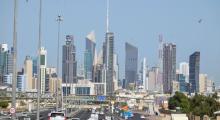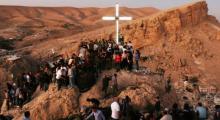Issued by the Catholic Center for Studies and Media - Jordan. Editor-in-chief Fr. Rif'at Bader - موقع أبونا abouna.org
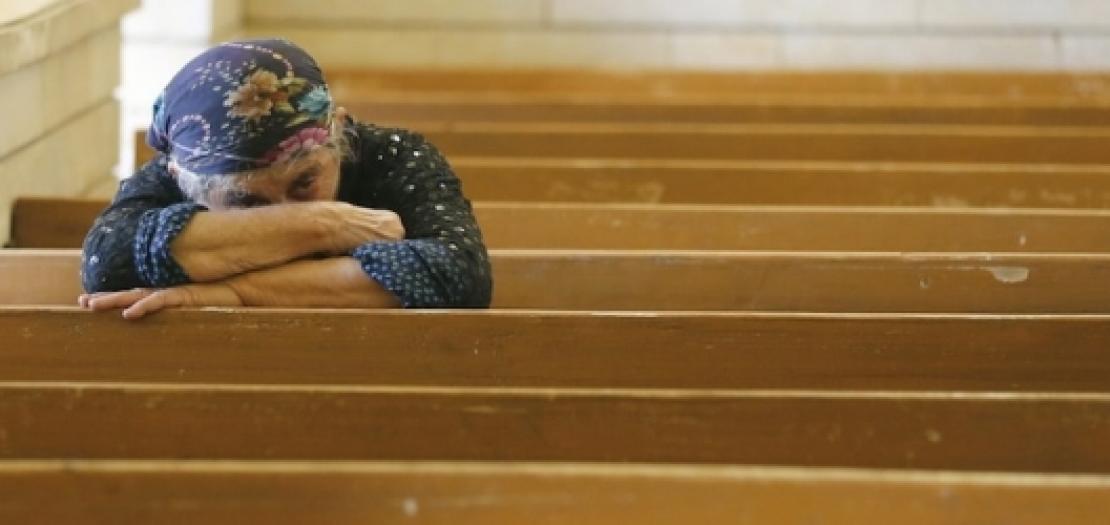
The relics of St. Thomas the Apostle were spirited away before ISIS jihadists could grab them, but ancient Christian churches and paintings in northern Iraq were ransacked, according to two speakers.
A sixth-century Christian church in the region was bombed this summer and another church obliterated, said Dr. Amal Marogy, a researcher in Neo-Aramaic studies at Cambridge University, at the Hudson Institute Tuesday. Marogy, 43, said her émigré cousins have “nothing to go back to in their hometowns. There’s absolutely nothing.”
Marogy toured her native region in October, and she concluded that the jihadist fighters of the Islamic State of Iraq and Syria destroyed more than Christian artifacts. “What I’m embracing here is, this is the last link to a culture that’s not going to be there any longer. What ISIS is doing is getting rid of the last link that we have that’s lasted for 2,000 years, and now we don’t know what’s going to happen to it,” Marogy said in an inflected voice, a departure from the monotone of her 45-minute lecture.
Nina Shea, director of the Center for Religious Freedom at the Hudson Institute, noted that the relics of St. Thomas the Apostle were transferred out of Mosul, Iraq, hours or days before the Islamic State group could take them this summer. The Islamic State's invasion of Iraq in June and July, Shea said, was a “phenomenal catastrophe.”
The jihadist group caught Western attention after its militants overran northern and central Iraq and advanced within miles of Baghdad. The insurgents’ campaign against ordinary Christians has alarmed Christian leaders and the Christian press. In September, Middle-Eastern Orthodox and Catholic prelates met in Washington, DC to appeal to the US government for help in withstanding the onslaught. At the same time, President Obama announced he would increase the amount of airstrikes and troops to fight ISIS in Iraq and Syria.
But the Islamic State has targeted fellow Muslims such as the Shiites and Sunnis, according to Robert A. Destro, a professor of law at the Catholic University of America’s Columbus School of Law.
“These extremists are Wahabbis (Salafis), who slaughter Infidels (non-Muslims), Sunnis who disagree with their extremist sect of Sunni Islam, and the Shiites, whom they consider to be heretics.” Destro wrote in an email. “Christians are, in their view, pagans (‘Christ-worshippers’) whose belief in the Trinity is a form of polytheism. Their atrocities are predictable, and unchanged since the 1700s, when their targets were fellow Muslims and Shiite shrines in the Arabian Peninsula, and are similar to those of the Taliban, who are inspired by precisely the same source. “
Destro noted that Wahabbis follow the teachings of Muhammad ibn Al-Wahhab, an 18th century Islamic scholar from Saudi Arabia.
Yet the treatment of Christians in the Middle East has a broader effect, Marogy said, noting that a Jewish woman asked why she should show concern for Christians. “Christians are an indicator of other religious minorities. If they are relatively tranquil and calm, others will be tranquil and calm. If they are targeted, other groups will be targeted,” Marogy said.
To preserve Christian culture in the region, Marogy called for training lay leaders, Christian and Muslim alike, and educating people about the cultural crisis. “Education is the key to everything,” Marogy said in an interview after her lecture. “If we don’t educate, we’re wasting our time.”



